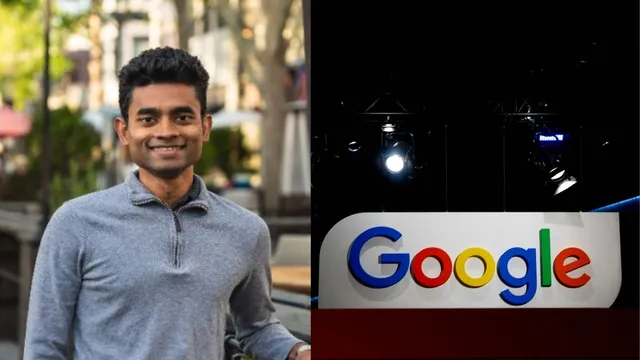- By Prateek Levi
- Sat, 12 Jul 2025 08:01 PM (IST)
- Source:JND
The race for top AI talent is officially at full throttle—and Google just made a power move. In a major development, Google has welcomed several leading minds from Windsurf, the fast-rising AI startup known for its work in code generation. The list includes Windsurf’s CEO and co-founder Varun Mohan, co-founder Douglas Chen, and multiple senior members of its R&D team. All of them are now part of Google DeepMind, working on what the company calls “agentic coding”.
ALSO READ: AI Influencers Are Reshaping Social Media: Can You Create One, And What Are The Ethical Concerns?
But here's the twist: Google hasn’t acquired Windsurf. Instead, it’s paying $2.4 billion for a nonexclusive license to Windsurf’s technology—meaning the startup can continue licensing its tools to others, even competitors. This clever play allows Google to benefit from the technology while letting Windsurf stay alive and independent.
Windsurf Stays Afloat While Google Gains Talent
Following the shake-up, Jeff Wang has stepped in as interim CEO at Windsurf. He confirmed that much of the original team will stick around, with a continued focus on growing the company’s enterprise footprint.
That’s a significant move for a startup that was, until just weeks ago, deep in acquisition talks with OpenAI, reportedly for $3 billion, according to CNBC. But with Google’s licensing deal and team acquisition, OpenAI has lost out—and Google has surged ahead in the talent war.
A Google spokesperson confirmed the news, saying, “We’re excited to welcome some top AI coding talent from Windsurf’s team to Google DeepMind to advance our work in agentic coding.” And Google DeepMind CEO Demis Hassabis made it official on X, welcoming Mohan and Chen and expressing enthusiasm for their contribution to Gemini and other advanced coding initiatives.
Get to know Varun Mohan, the mastermind behind Windsurf.
But who is Varun Mohan, exactly?
The ex-Windsurf CEO grew up in Sunnyvale, California, and is a native of Silicon Valley, reportedly the child of Indian immigrant parents. His mathematics and computing talent was apparent early on at San Jose's The Harker School, leading him to MIT, where he received both bachelor's and master's degrees in electrical engineering and computer science. His areas of study? Operating systems, machine learning, distributed computing, and performance engineering.
Prior to starting his own company, Mohan held a stint at some of the tech giants—Nuro, Quora, LinkedIn, Databricks, and Samsung, to name a few—gaining rich experience in systems and software. He gained fame not only as a coder but also as someone who converted intricate algorithms into practical solutions.
Mohan teamed up with MIT classmate and friend Douglas Chen in 2021 to start Codeium, which was subsequently renamed Windsurf. The firm initially concentrated on GPU virtualisation infrastructure before ultimately migrating to what made it a star player: AI-native developer tools, including an IDE plugin and an independent environment for new coding patterns.
Under Mohan, Windsurf picked up momentum at a breakneck rate—more than one million developers onboarded within four months. The company also raised $243 million and reached a valuation of $1.25 billion, becoming one of the fastest-growing companies in developer-centric AI.
It was Mohan's conviction in the agentic IDE—a development environment centred around large language models and AI agents—that set Windsurf apart. He envisioned a future where AI would shoulder much of the boilerplate coding, allowing engineers to concentrate on design, architecture, and actual problem-solving.
The Bigger Picture
This is not merely about a single startup's pivot or a single company's hiring binge—it's an unmistakable indicator of the intensifying AI talent war. Google's move is not only strategically positioning it to win the race to create sophisticated coding agents but also pressing rival contenders such as OpenAI, Microsoft, and others in pursuit of the same objective: AI that can code, learn, and assist in constructing the software of the future.
ALSO READ: iPhone 17 Pro And iPhone 17 Pro Max: Will We Get To See 8K Video Recording This Time?
And now that the Windsurf crew are powering Google DeepMind's purpose, that future is perhaps a little more immediate.

